Humanities Speak Many Languages: the Language of Summaries Published in Croatian Journals in the Field of Ethnology and Cultural Anthropology
Aim
The scientific communication has changed. Changes are visible in the modalities of scientific publishing, especially those concerning languages of scientific publications. The aim of this research is to determine the characteristics of scientific communication patterns noticeable in journals in the field of ethnology and cultural anthropology published in Croatia. The research will focus on the languages in which the articles are published, and in particular the languages of summaries will be explored.
Methods
The research is based on a set of articles published in three Croatian scientific journals in the field of ethnology and cultural anthropology: “Etnološka tribina: godišnjak Hrvatskog etnološkog društva“, “Narodna umjetnost: hrvatski časopis za etnologiju i folkloristiku“ and “Studia ethnologica Croatica“. These are highly specialized journals in the mentioned area. Also, they are categorized as a1 journals in the field of humanities, according to “Pravilnik o uvjetima za izbor u znanstvena zvanja“ (Code on requirements for selection in scientific professions) (1). The research covered a five-year period, from 2014 to 2018. In this period, journals “Etnološka tribina“ published 5 issues, “Narodna umjetnost“ 10 issues, and “Studia ethnologica Croatica“ published 5 issues. The types of journal articles considered eligible for inclusion in the analysis are original scientific paper, preliminary communication, review article and professional paper. All three journals are open access and they are present at the Croatian national open access journal platform “Hrčak – Portal hrvatskih znanstvenih i stručnih časopisa“ (Hrčak – Portal of Croatian scientific and professional journals) (2). The resulting set of articles (194 articles) was than analysed for determining language practices. The following information was recorded for each article: language in which the full text of an article was published and choice of the language for the article summary.
Results and Discussion:
The analysis of languages in which the full text of the articles were published gave the following results: 46.4 % of articles were published in Croatian language (90/194), 48.5 % in English (94/194), 4.6 % in Serbian (9/194) and 0.5 % in Bosnian (1/194). The analysis of article summaries showed the total number of 400 summaries published in the analysed set of 194 articles. The summaries were published in following nine languages: 46 % in Croatian (184/400), 48.5 % in English (194/400), and 5.5 % in languages other than English (22/400; Albanian 3, Bayash Romanian 1, Bosnian 1, Polish 1, Romani Chib 1, Serbian 9, Slovak 1, Slovenian 4, Spanish 1). The dissemination of new knowledge by publishing articles in scientific journals is crucial in the development of most professions. In addition to the general, international standards applied in scientific research and scientific publishing, national scientific research policy and policymakers can also participate in the creation of the editorial practices.
In the Croatian context, we will mention “Upute za uređivanje i oblikovanje časopisa“ (Guidelines for journal editing and formatting) (3) prescribed by The Ministry of Science and Education of the Republic of Croatia. They require that all articles in scientific and professional journals should include, among other elements, a summary. The summary is a brief overview of the main ideas of an article. Along with the title and keywords, it has impact on a reader's intention to read or not to read the article. As for the language of the summaries published in Croatian scientific and professional journals, “Guidelines“ mention following recommendation: “Ako se časopis objavljuje na hrvatskom jeziku, sažetak se treba tiskati na hrvatskom i na jednom od svjetskih jezika.“ (If the journal is published in Croatian, the summary should be published in Croatian and in one of the world languages.) (3). In our research, the term 'world language' denotes the following languages: English, French, Spanish, Russian, German, Italian, Chinese and Portuguese. Although “Guidelines“ do not explicitly mention the English language, the results of our research have shown that summaries in English as the second language make up the largest share in the analysed set of articles. Besides following the aforementioned „Guidelines“, some novelties in editorial practices can be observed, too. We noticed the increase in the number of additional summaries published in languages that cannot be reduced to the general category of 'world languages' (e.g. summaries in Slovenian, Albanian, Romani, Slovak, Polish, etc.).
The diversity of languages of the summaries published in the set of articles analysed in this research is the result of the heterogeneous scientific publication patterns in the humanities. Also, every field in the humanities is characterized by specificities in scientific communication and publishing. Therefore, in the field of ethnology and cultural anthropology, as part of humanities, attention must be paid not only to ethnographic writing but also to other forms of communication among experts, which must be followed in writing and editing of scientific articles (4,5). The subject matter of scientific and professional articles in the humanities journals, as well as those from ethnology and cultural anthropology, has a particular national and regional interest, and therefore, publishing in the local language is a very common phenomenon in humanities (6). Publishing in the local languages makes science available to local community, and terminology development plays a pivotal role in enriching the language and culture of a society. In addition, articles can be published also in English, which potentially leads to greater international visibility and recognition of scientific work, and contributes to internationalisation of scientific community and research results.
The research conducted on the scientific and professional articles published in three Croatian scientific journals in the field of ethnology and cultural anthropology, during 2014 and 2018, confirms that English is the main foreign language in which articles (94/194, 48.5 %) and summaries (194/400, 48.5 %) are published. However, changes in editorial practices that have resulted in publishing of the articles in several languages have been recognized. In addition to the article summary in English, summaries are also published in languages other than English (22/400, 5.5 %). From this it can be assumed that the importance of language practices and publishing in the non-English languages, in the Croatian context, is recognized. The importance of this issue is confirmed by recent initiatives to encourage multilingualism in scientific communication (7).
Conclusion
The results of the scientific research of a wider scientific community, made up of speakers of different non-English languages, can become invisible and unrecognizable to the wider scientific community. In order to prevent such a language bias in science, it is advisable to publish articles in multiple languages. Multilingualism can encourage accessibility as well as transparency of scientific research, and it is important to mention that it also promotes the preservation of the languages of small-scale scientific communities. This can be accomplished by translating full-text articles into multiple languages, but also by publishing summaries not only in English but also in languages other than English.
 Gwen FranckEIFL, Lithuania
Gwen FranckEIFL, LithuaniaGwen Franck is consultant and facilitator, interested in the ‘hands on’ aspects of Open Science such open access publishing, self-archiving… More →
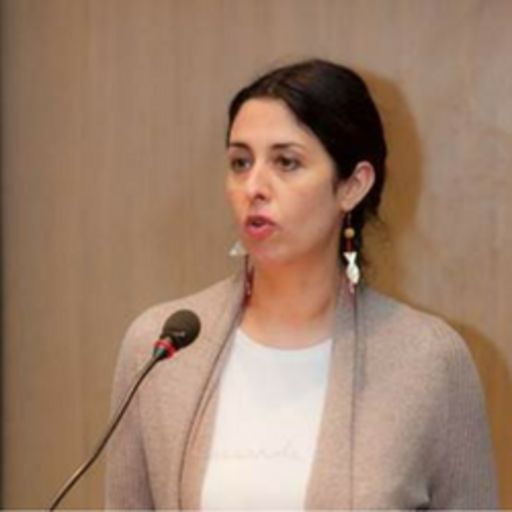 Victoria TsoukalaEuropean Commission
Victoria TsoukalaEuropean CommissionVictoria Tsoukala works as a Policy Officer in the European Commission, DG RTD.G2: Open Science, in Secondment from her position at the… More →
 Adriaan van der WeelLeiden University
Adriaan van der WeelLeiden UniversityAdriaan van der Weel is Bohn extraordinary professor of Modern Dutch Book History at the University of Leiden and lecturer in Book and… More →
 Sami SyrjämäkiFederation of Finnish Learned Societies
Sami SyrjämäkiFederation of Finnish Learned SocietiesDr Sami Syrjämäki is the head of publications at the Federation of Finnish Learned Societies. His expert work focuses on science policies… More →
 Thed van LeeuwenLeiden University
Thed van LeeuwenLeiden UniversityThed van Leeuwen is a senior researcher at the Centre for Science and Technology Studies (CWTS) of Leiden University in the Netherlands. As… More →
 Andrei RostovtsevDissernet, Russia
Andrei RostovtsevDissernet, RussiaProf Andrei Rostovtsev is a Russian physicist, doctor of physical and mathematical sciences. He graduated from the National Research Nuclear… More →
 Vanessa ProudmanSPARC Europe
Vanessa ProudmanSPARC EuropeVanessa Proudman is Director of SPARC Europe; she is working to make Open the default in Europe. Vanessa has 20 years’ international… More →
 Ana MarušićUniversity of Split
Ana MarušićUniversity of SplitAna Marušić is Professor of Anatomy and Chair of the Department of Research in Biomedicine and Health at the University of Split School of… More →
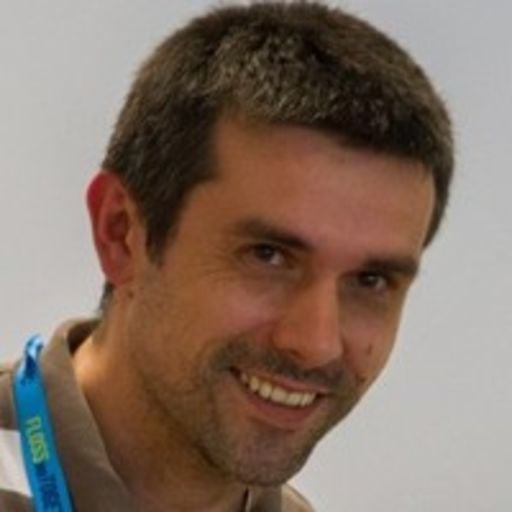 Alen VodopijevecRuđer Bošković Institute
Alen VodopijevecRuđer Bošković InstituteMSc Alen Vodopijevec obtained his diploma in 2003 at the University of Zagreb, Faculty of Social Sciences and Humanities, and currently is… More →
- Anita Pavić Pintarić
 Damien VannsonThunken
Damien VannsonThunkenBuilder at heart, driven by the satisfaction of turning shower thoughts and back-of-the-envelope plans into full-fledged, user-friendly… More →
 Danijel GudeljUniversity of Zagreb
Danijel GudeljUniversity of ZagrebDanijel Gudelj is M.A. of sociology and croatology, graduated at Centre for Croatian Studies, University of Zagreb. Currently, he is a… More →
 Blaž RebernjakUniversity of Zagreb
Blaž RebernjakUniversity of ZagrebBlaž Rebernjak was born in Zagreb in 1983, where he finished primary and secondary schools. In 2007 he obtained his MA and in 2013 his PhD… More →
- Evgenia Arh
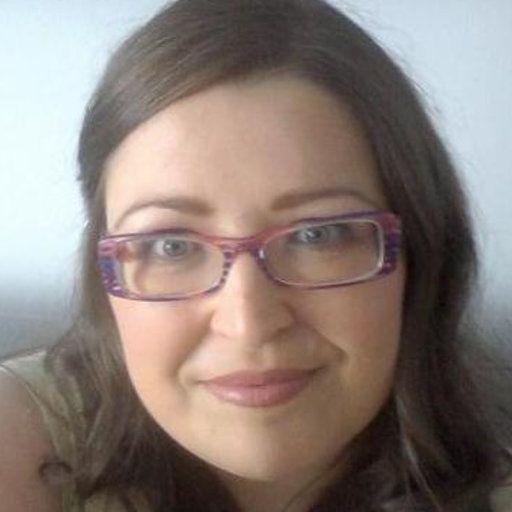 Drahomira CuparUniversity of Zadar
Drahomira CuparUniversity of ZadarDrahomira Cupar, Phd, is an assistant professor at the University of Zadar, Department of Information Sciences. She obtained her PhD in… More →
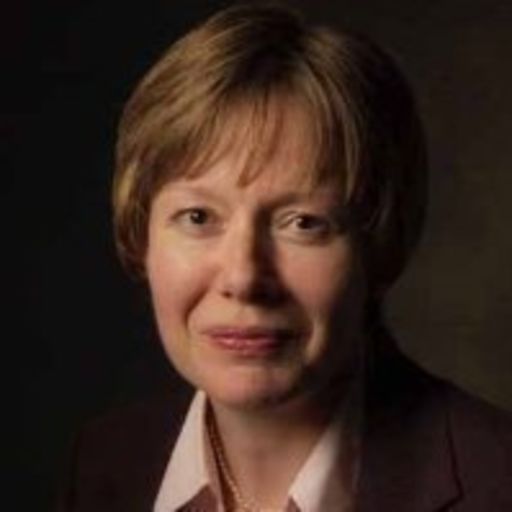 Elizabeth WagerSideview
Elizabeth WagerSideviewElizabeth (Liz) Wager, PhD is a freelance consultant and trainer who has worked on six continents. She chaired the Committee on Publication… More →
 Filip HorvatUniversity of Rijeka
Filip HorvatUniversity of RijekaFilip Horvat is a librarian at the Faculty of Civil Engineering, University of Rijeka. He received his Master’s degree in Information… More →
 Goranka MitrovićNational and University Library in Zagreb
Goranka MitrovićNational and University Library in ZagrebGoranka Mitrović, senior librarian, works at the National and University Library in Zagreb, Croatia (NUL) since 1993. Her research interest… More →
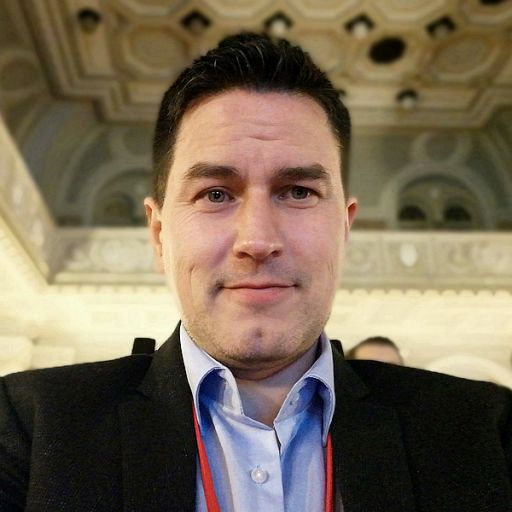 Draženko CeljakUniversity Computing Centre
Draženko CeljakUniversity Computing CentreMSc Draženko Celjak is the head of data services at SRCE – University of Zagreb University Computing Centre. He coordinates and leads the… More →
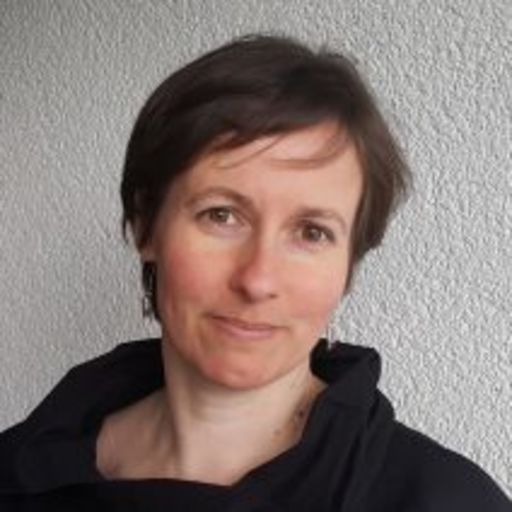 Iva Melinščak ZlodiUniversity of Zagreb
Iva Melinščak ZlodiUniversity of ZagrebIva Melinščak Zlodi works as an e-resources librarian at the Library of the University of Zagreb Faculty of Humanities and Social Sciences… More →
 Ivana MajerUniversity of Zagreb
Ivana MajerUniversity of ZagrebIvana Majer graduated from the Faculty of Humanities and Social Sciences at the University of Zagreb, and got her degree in Croatian… More →
 Irena KranjecUniversity of Zagreb
Irena KranjecUniversity of ZagrebIrena Kranjec works as a subject librarian for information sciences at the Library of the Faculty of Humanities and Social Sciences… More →
 Jasminka MaravićCARNet Department for Education Support
Jasminka MaravićCARNet Department for Education SupportJasminka Maravić is Project Manager at CARNet Department for Education Support. During her 14 years in CARNet she has been involved in… More →
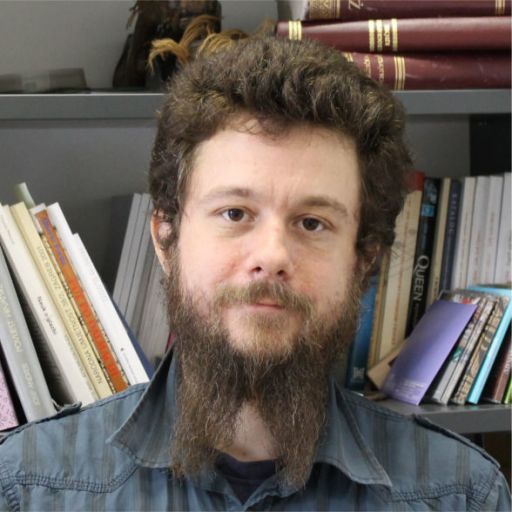 Krešimir ZauderUniversity of Zadar
Krešimir ZauderUniversity of ZadarKrešimir Zauder was born in Zagreb, Croatia in 1980. He graduated Information science and English language and literature in 2006. In 201… More →
 Jure TriglavCollaborative Knowledge Foundation
Jure TriglavCollaborative Knowledge FoundationJure is the lead developer at the Collaborative Knowledge Foundation, where he develops the PubSweet framework and supports its community. More →
- Josipa Zetović
 Kristina RomićNational and University Library in Zagreb
Kristina RomićNational and University Library in ZagrebKristina Romić works at the Acquisition Department, National and University Library in Zagreb, Croatia. She graduated from the Faculty of… More →
- Ksenija Baždarić
 Ksenija Švenda RadeljakUniversity of Zagreb
Ksenija Švenda RadeljakUniversity of ZagrebKsenija Švenda Radeljak is employed at the Library of Department of Social Work at the Faculty of Law University in Zagreb. The areas of her… More →
 Linda SīleUniversity of Antwerp
Linda SīleUniversity of AntwerpLinda Sīle is doctoral student at the University of Antwerp within the Centre for R&D Monitoring (ECOOM). My current work spans somewhat… More →
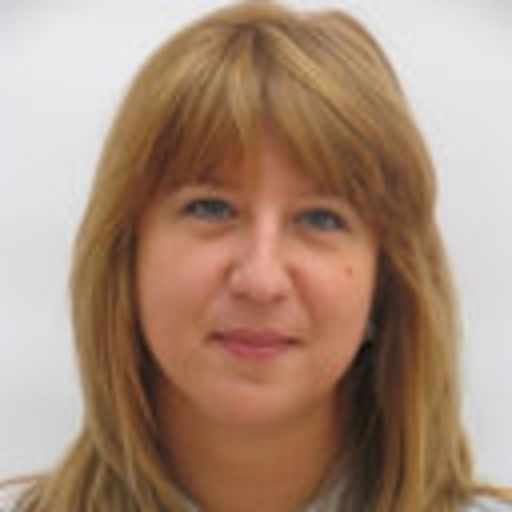 Lovela Machala PoplašenUniversity of Zagreb
Lovela Machala PoplašenUniversity of ZagrebLovela Machala Poplašen is a head librarian at the Andrija Štampar Library, School of Public Health, School of Medicine, University of… More →
- Ljiljana Poljak
 Luc BorutaThunken
Luc BorutaThunkenPh.D. in computational linguistics, natural language processor, interested in linked data and linguistic diversity. In previous lives, Luc… More →
 Ljiljana Jertec MusapSRCE – University Computing Centre, University of Zagreb
Ljiljana Jertec MusapSRCE – University Computing Centre, University of ZagrebMSc Ljiljana Jertec is a librarian and computer specialist at SRCE – University of Zagreb University Computing Centre. She has a Master’s… More →
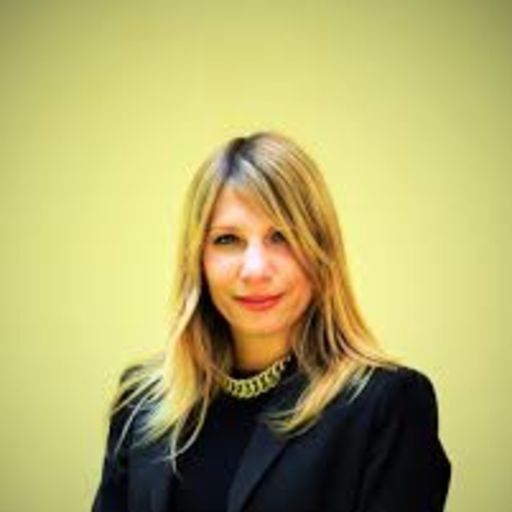 Lucija VejmelkaUniversity of Zagreb
Lucija VejmelkaUniversity of ZagrebLucija Vejmelka is an assistant professor at the University of Zagreb, Faculty of Law, Department of Social Works, where she leads the… More →
- Marijana Briški Gudelj
 Marijana GlavicaUniversity of Zagreb
Marijana GlavicaUniversity of ZagrebMSc Marijana Glavica works as a systems librarian at the University of Zagreb Faculty of Humanities and Social Sciences Library, where she… More →
 Marina Cvitanušić BrečićCroatian Agency for Science and Higher Education
Marina Cvitanušić BrečićCroatian Agency for Science and Higher EducationMarina Cvitanušić Brečić works at the Analytics and Statistics Department of the Croatian Agency for Science and Higher Education (ASHE… More →
 Marina GrubišićCroatian Agency for Science and Higher Education
Marina GrubišićCroatian Agency for Science and Higher EducationMarina Grubišić is the head of the Analytics and Statistics Department of the Croatian Agency for Science and Higher Education (ASHE). She… More →
 Matko MarušićUniversity of Split
Matko MarušićUniversity of SplitMatko Marušić is Professor Emeritus at the University of Split, Split, Croatia. He was a Professor at Medical Schools (in Zagreb and Split… More →
- Nicolas Robinson-Garcia
- Neven Pintarić
 Paulin RibbeOpenEdition
Paulin RibbeOpenEditionPaulin Ribbe is Project Manager for the OPERAS infrastructure at OpenEdition (France, Marseille - CNRS, AMU, EHESS, Avignon Univ.). He holds… More →
 Radovan VranaUniversity of Zagreb
Radovan VranaUniversity of ZagrebBorn in Zagreb, Croatia. Primary and secondary education completed in Zagreb. Croatia. Graduated information sciences and the English… More →
 Rafaelly StavaleUniversity of Brasília
Rafaelly StavaleUniversity of BrasíliaRafaelly Stavale is a current student of Nursing at Universidade de Brasília – UnB. She has recently completed the Principles and Practices… More →
 Olga KirillovaAssociation of Science Editors and Publishers (ASEP), Moscow, Russia
Olga KirillovaAssociation of Science Editors and Publishers (ASEP), Moscow, RussiaOlga V. Kirillova, Candidate of Science (Engineering, 2004), the President of the Association of Science Editors and Publishers (ASEP, since… More →
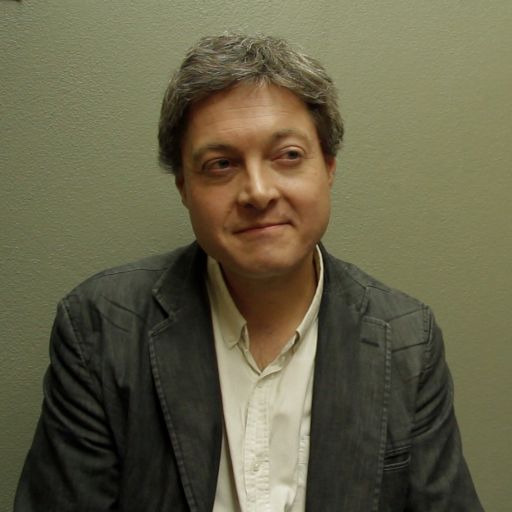 Pierre MounierOpenEdition
Pierre MounierOpenEditionPierre Mounier is deputy director of OpenEdition , a comprehensive infrastructure based in France for open access publication and… More →
 Rodrigo CostasLeiden University
Rodrigo CostasLeiden UniversityRodrigo Costas is an experienced researcher in the field of information science and bibliometrics. With a PhD in Library and Information… More →
 Tihana RubićUniversity of Zagreb
Tihana RubićUniversity of ZagrebTihana Rubić is an assistant professor at the Department of Ethnology and Cultural Anthropology, Faculty of Humanities and Social Sciences… More →
 Vicko TomićUniversity of Split
Vicko TomićUniversity of SplitVicko Tomić is a research assistant at the Department of Research in Biomedicine and Health at the University of Split School of Medicine… More →
 Vanessa FairhurstCrossref
Vanessa FairhurstCrossrefVanessa Fairhurst joined Crossref in 2017 and is based at the Oxford office. As Community Outreach Manager, her role involves working… More →
 Želimir KurtanjekUniversity of Zagreb
Želimir KurtanjekUniversity of ZagrebŽelimir Kurtanjek is a retired professor of chemical engineering with an interest in biotechnology, biostatistics and big data analytics… More →
 Vlatka BožičevićUniversity of Zagreb
Vlatka BožičevićUniversity of ZagrebVlatka Božičević gratuated from Religious Pedagogy and Catechetics at the Catholic Faculty of Theology University of Zagreb and the… More →
- Željka Salopek
 Zoran VelagićUniversity of Osijek
Zoran VelagićUniversity of OsijekZoran Velagić is a professor of book history and publishing studies at the University of Osijek, Faculty of Humanities and Social Sciences… More →